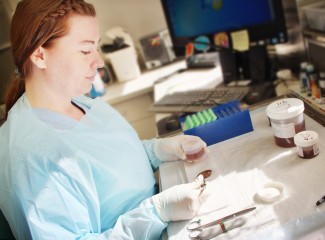
Although you may think that someone with a master’s degree deserves a more prestigious job title than “assistant,” there are actually a lot of perks to being a pathologists’ assistant instead of a pathologist. Instead, this graduate degree program puts you on the path to working as a pathologists’ assistant. All rights reserved.You might be surprised to find that a master’s degree in pathology, one of the highest paying master’s degrees, doesn’t prepare you to be a pathologist. © 1998-2022 Mayo Foundation for Medical Education and Research. "Mayo," "Mayo Clinic," "," "Mayo Clinic Healthy Living," and the triple-shield Mayo Clinic logo are trademarks of Mayo Foundation for Medical Education and Research.
#Pathology assistant programs professional

In order to take the certification exam, you must have a bachelor’s degree and must have completed an accredited pathologists’ assistant program within a five-year period. Pathologists’ assistant program (a two-year program that results in a master’s degree)Īfter completing a pathologists’ assistant program, you must become certified through the American Society for Clinical Pathology (ASCP).Bachelor’s degree in one of the life sciences, i.e.Higher education requirements for a pathologists’ assistant include: Individuals interested in becoming a pathologists’ assistant should take advantage of math and science courses in high school, to prepare for college courses in these subjects. Hours for the job can vary, but they typically have regular, weekday schedules.

They spend most of their time on their feet in the lab. Pathologists’ assistants work in hospitals, pathology labs, forensic labs, and morgues.


Pathologists' assistants also perform postmortem examinations including prosection, assisting the pathologist with rendering the provisional anatomic diagnosis, composing the clinical history, recording the macroscopic anatomic findings, and submitting tissue sections for microscopic examination. Services in both surgical and autopsy pathology include processing a variety of laboratory specimens, comprehensive macroscopic examination, and evaluating all surgical pathological specimens. A pathologists’ assistant is a highly trained, certified allied health professional who is qualified by academic and practical training to provide services in anatomic pathology under the supervision of a licensed, board-certified, or board-eligible anatomic pathologist.


 0 kommentar(er)
0 kommentar(er)
